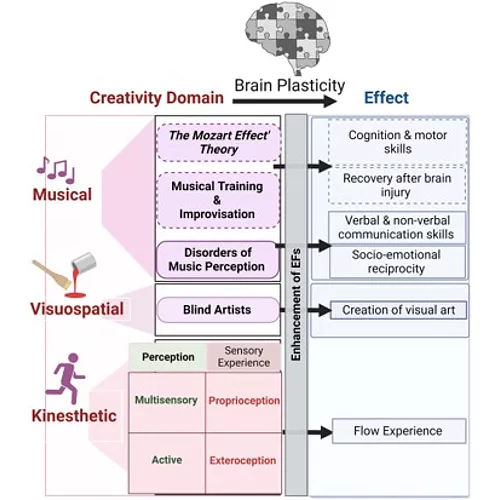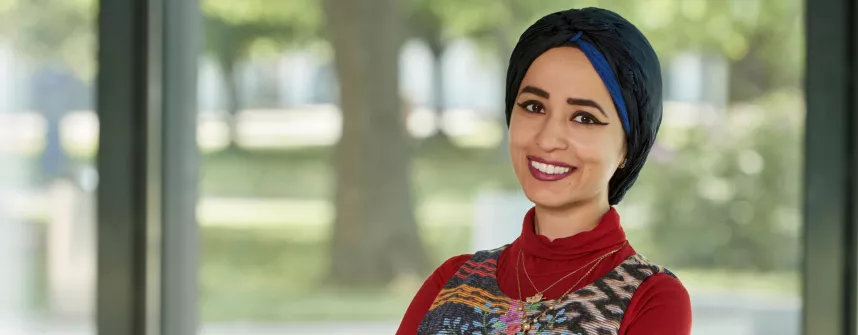The healing power of creative therapy
Can creative therapies help with neurodegenerative diseases, such as stroke and Alzheimer’s disease? Neurobiologist Dr. Radwa Khalil of Constructor University in Bremen and Prof. Vida Demarin, former director of the International Institute for Brain Health in Zagreb, Croatia, have recently published an article in the journal CNS & Therapeutics, presenting their results addressing this question.
The concept of "brain plasticity," pertains to modifications in the neural pathways of the brain and refers to the changes that usually arise in response to various factors, such as training-induced behavioral alterations and physiological processes like maturation or brain injuries. Khalil and Demarin are researching how to improve plasticity through creative therapies related to neurodegenerative diseases such as stroke and Alzheimer's disease. In their article "Creative therapy in health and disease: Inner vision", now published in the journal CNS & Therapeutics, the authors deal with creative therapeutic approaches such as painting, music, sport, and dance. "Creativity is more than creating novel, surprising, and useful solutions," Khalil pointed out. "The neuroscientific approach to examining the relationship between creativity and health is frequently disregarded. Creative therapy can help patients compensate for their cognitive impairments by expressing their hidden talents."
At the same time, the authors identify a number of central questions that require further research. "Despite the current development in the research on the neuroscience of creativity, it is still in the shadow compared to other research domains. Progress in this research domain demands further empirical studies," said Khalil.

Image: Graphic depiction showing how three creative domains—musical, visuospatial, and kinesthetic—affect brain plasticity in individuals who have suffered brain injuries. (Source: Khalil/Constructor University)
Link to the article:
https://onlinelibrary.wiley.com/doi/10.1111/cns.14266
Questions answered by:
Radwa Khalil | Postdoc in Neurosciences
rkhalil@constructor.university | Tel.: +49 421 200-3430
About Constructor University:
An international community, vibrant and diverse. Offering academic excellence, ensuring the highest standards in research and teaching. Empowering students to solve the world's pressing challenges through knowledge and science: Constructor University is a top-ranked, English-speaking, private university. Founded in 2001, it provides a wide range of 25+ academic programs and PhD. The Constructor ecosystem comprises the University, located in Bremen, Germany, and an institute in Schaffhausen, Switzerland.
Over 1.800 students from more than 110 nations on campus benefit from a unique interdisciplinary, foundational theoretical and practical education. Enriched with a buzzing entrepreneurial culture that prepares young professionals to thrive in the job market. With 6.000+ alumni worldwide, our community keeps growing – with our highest cohort ever registered in 2022.
The research-centric faculty projects are funded by the German Research Foundation and the European Union's Framework Program for Research and Innovation as well as by globally leading companies.
The Constructor ecosystem benefits from partnerships with high-ranked universities such as Carnegie Mellon, the University of Geneva or the National University of Singapore School of Computing, and technology companies such as Anisoprint, JetBrains and ChemDiv.
Constructor is a global institution dedicated to addressing the main challenges of the world through science, education, and technology. Apart from the University in Bremen, the ecosystem comprises an Institute in Schaffhausen (Switzerland) and several for-profit entities that provide technology infrastructures and solutions, life-long education programs, consulting services, and funding.
